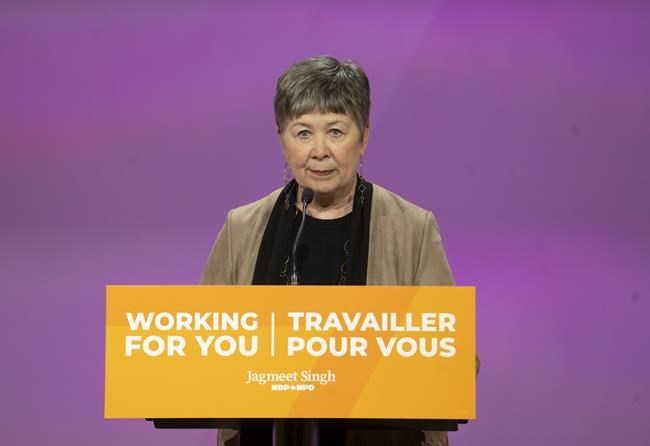OTTAWA — The federal New Democrats believe they will soon be able to pay off their 2021 election debt, but will await end-of-year fundraising totals before marking the occasion.
Just how much was raised during a final 2023 fundraising blitz will become clear at the end of the month, when totals must be reported to Elections Canada, NDP director Anne McGrath said Monday.
The party has less than $1 million left on a $22-million election loan from 2021, and recent fundraising efforts should allow it to pay off the debt in the coming months, McGrath said.
Once that's done, she said the party will start building a war chest for the next federal election call, which has to come sometime before Oct. 20, 2025.
"It's usually a big moment when we finally get the election debt paid off and we can finally start accumulating a war chest for the next campaign," McGrath said.
"We've been making investments in election preparation and we've been paying down the debt."
The NDP's confidence-and-supply agreement to keep the minority Liberal government afloat runs until June 2025. An election could come sooner if that agreement were to fall apart.
Should that happen, the New Democrats would be prepared to run a full slate of candidates, with more than 30 having already been nominated, McGrath said.
Indeed, preparations are already well underway, with nomination meetings taking place and polling research underway to determine what trends might be emerging, she added.
But McGrath said she doesn't expect a vote before 2025.
"There's still a lot of work to do, certainly with our supply-and-confidence agreement with the Liberals," she said.
"My hope is that we will be able to get more done before there's an election."
That to-do list includes drafting and agreeing with the Liberals on a framework for a new pharmacare program, which needs to be introduced in the House of Commons by March.
McGrath said she's "quite confident" a deal will be reached, despite the fact the NDP rejected a first draft in the fall. Leader Jagmeet Singh has said his party would only agree to legislation that lays the groundwork for a universal, single-payer pharmacare program.
"I think that there is a goodwill on both sides and a desire to find an agreement," McGrath said.
"I do worry about the influence of some of the major pharmaceutical companies. We've seen the kind of influence that they've had. But at the same time, I do believe that there is a desire in the public for us to strengthen our health care system and to protect it."
The New Democrats have vowed to abandon their agreement with the Liberals if a pharmacare deal falls apart. But rather than force an election, they would instead decide on a vote-by-vote basis whether or not to support the government.
The Liberals are 12 seats shy of a majority in the Commons, which means they need the support of at least a dozen opposition MPs in order to pass legislation and survive confidence votes.
New Democrats, who have long campaigned to make universal access to prescription drugs part of the public health care system, believe that pharmacare is an issue that separates them from the Liberals.
The Liberals did campaign on a promise to implement a national pharmacare program in the 2019 election, but made no such pledge when they went back to the polls in 2021.
New Democrats expect health care to be top of mind for voters in the next election, citing a similar strategy in Manitoba that helped propel Wab Kinew into the premier's office last fall.
This report by The Canadian Press was first published Jan. 8, 2024.
Mickey Djuric, The Canadian Press



